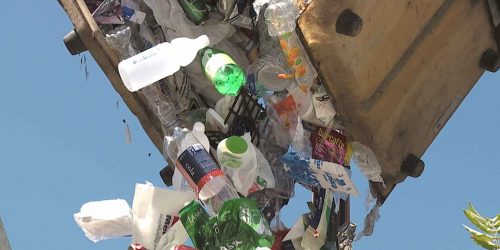APlastics recycling is failing. Globally, over 350 million metric tons of plastic are produced annually, but according to the OECD, only 14-18% of that is recycled. And now that China has stopped importing the world’s plastic waste, we’re being forced to deal with it domestically.
The problem is, most plastics just aren’t recyclable. And even those that are degrade in quality each time they’re remade, meaning they’ll eventually end up in a landfill too. Many environmentalists say this means we need to stop plastics production at the source, and support bans or taxes on single-use plastics.
But plastic industry groups are betting big on a technology known as chemical recycling, which is supposed to break down any type of plastic into its raw components, and convert it into either fuel or plastic that’s as good a new.
A number of companies like Brightmark, Plastic Energy, and Agilyx now say they’re ready to deploy this technology on a larger scale than ever before. But skepticism abounds, as environmental groups express doubt about the tech’s economic feasibility, capacity to further scale up, and carbon footprint.





